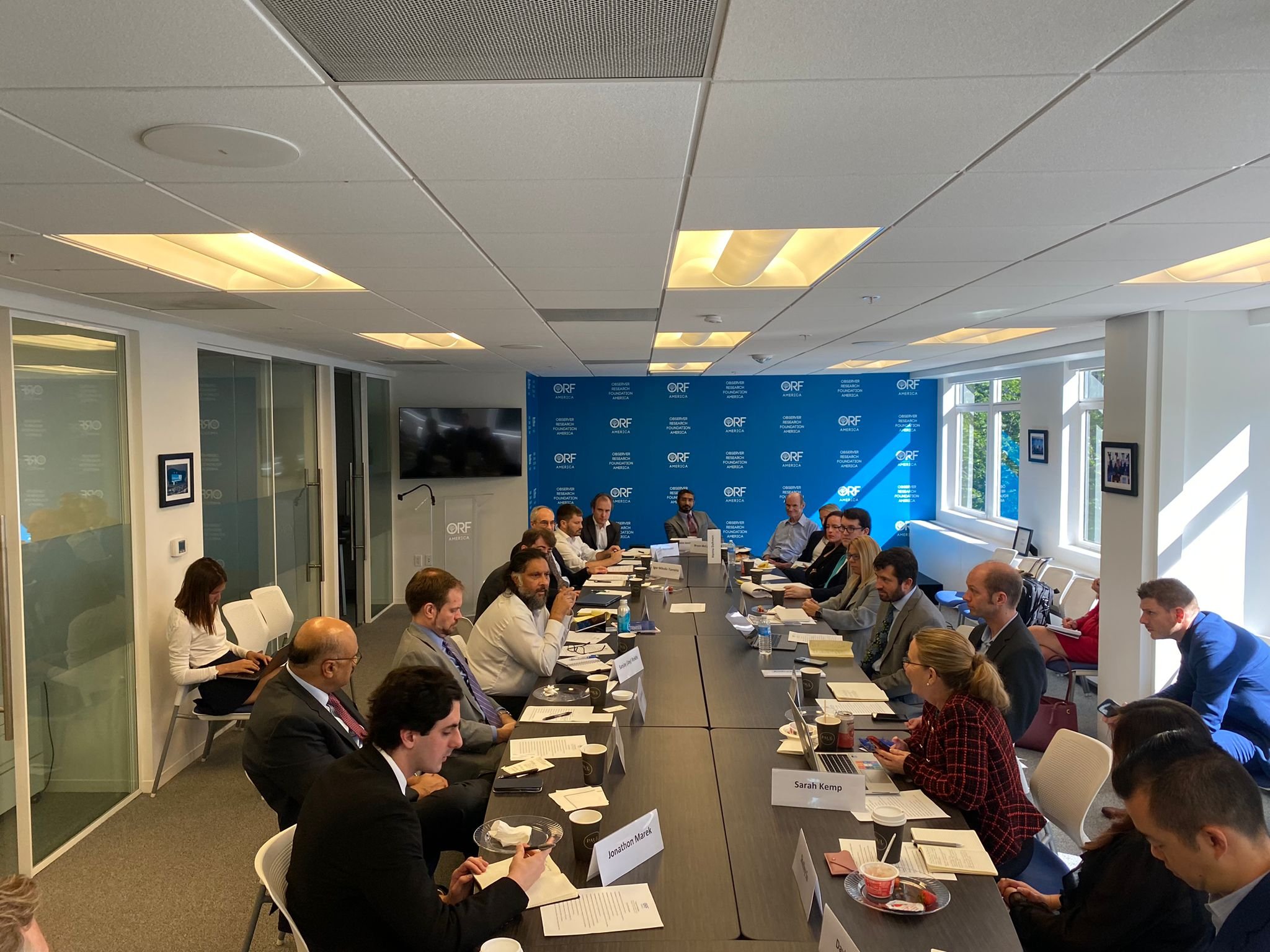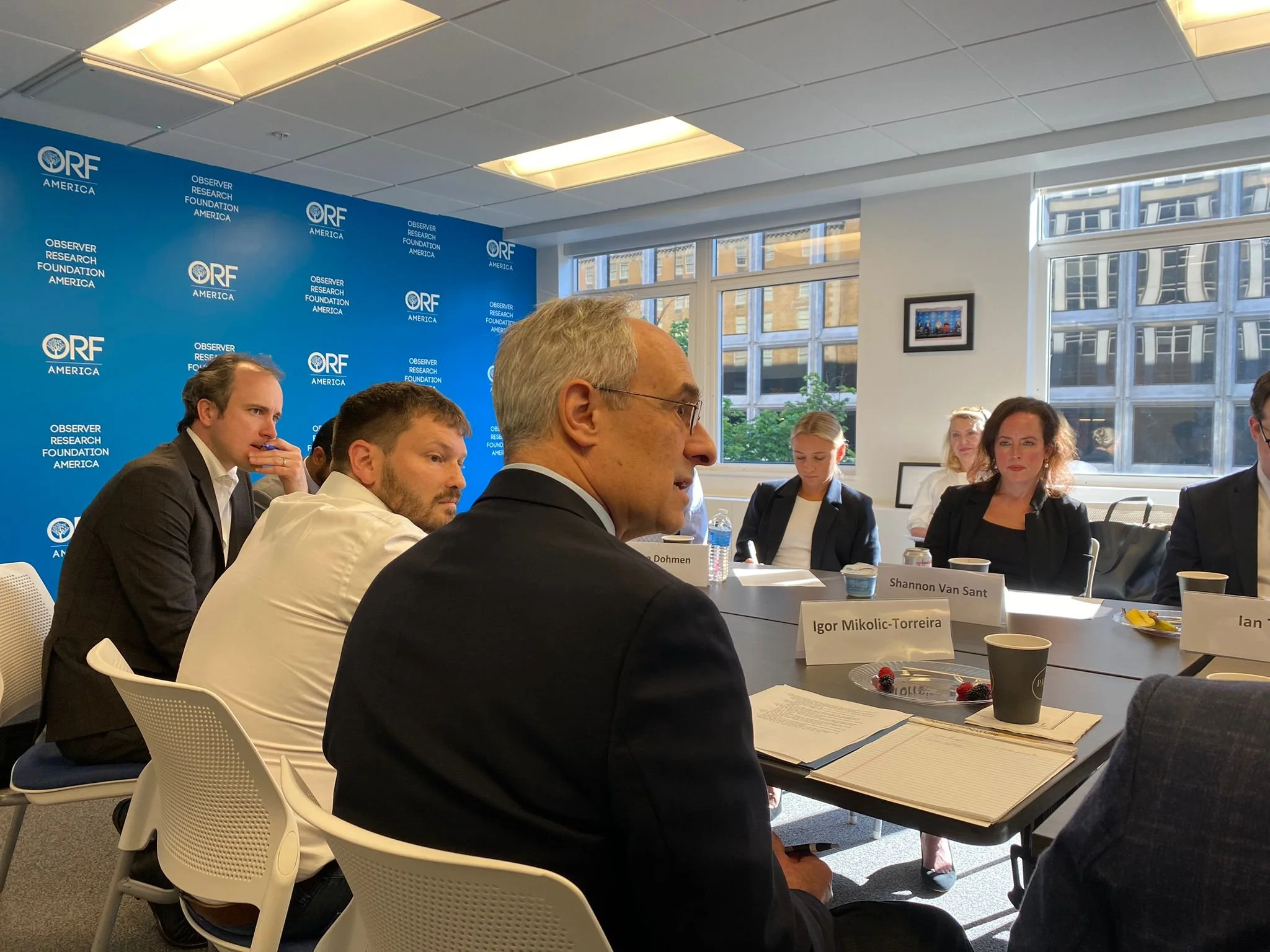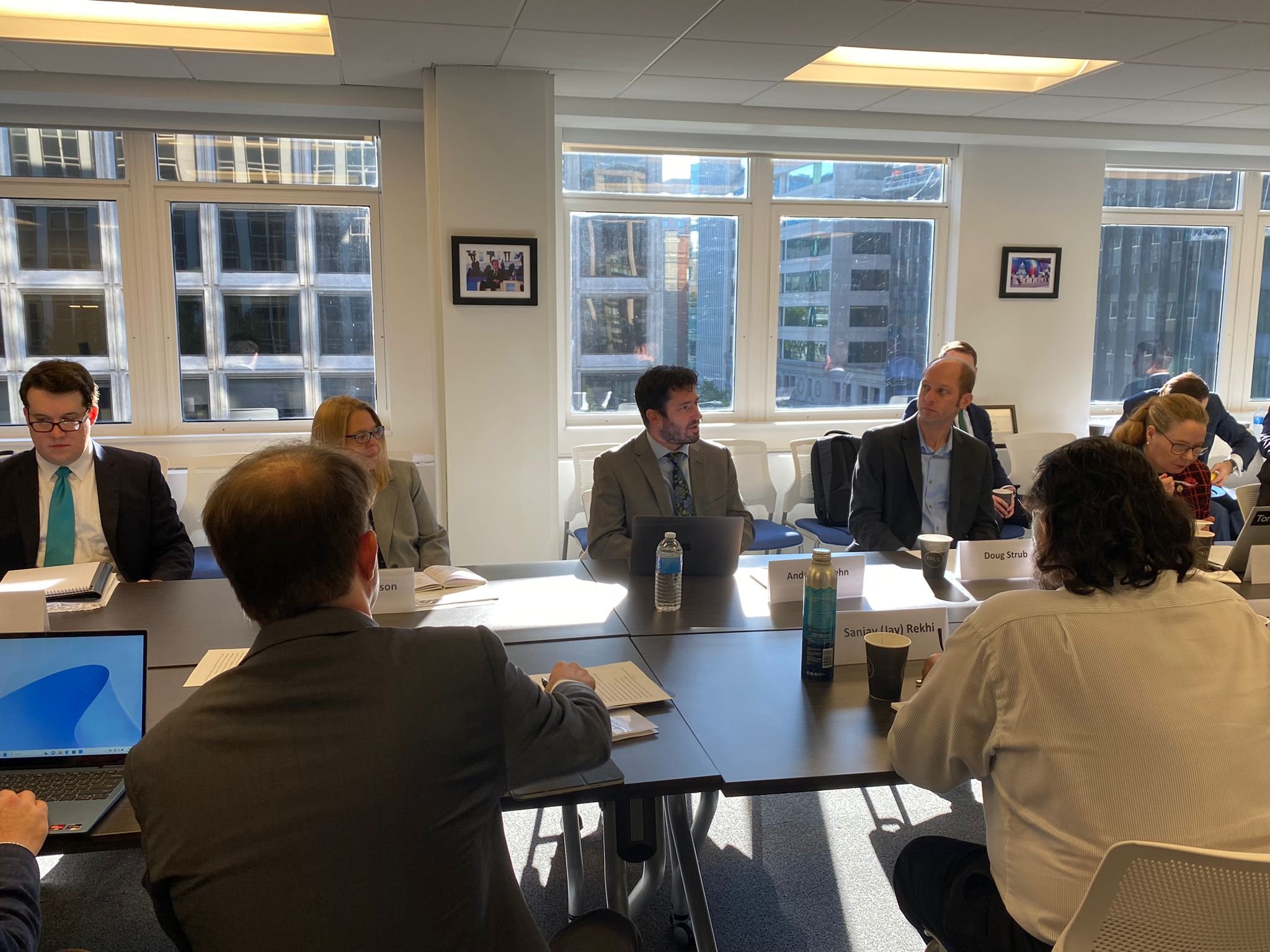On September 14, ORF America hosted the third Chips for Breakfast, a private roundtable to facilitate frank conversations among a select group of U.S. and foreign government officials, industry representatives, and policy experts about the current state of U.S. semiconductor policy, technology leadership, and collaboration with like-minded partners to strengthen international commerce and security.
Against the backdrop of the one year anniversary of passing the Chips & Science Act, this meeting focused on global semiconductor supply networks and the role the United States can play to lessen supply chain vulnerabilities and shed exploitable dependencies. It sought to address pressing questions along two lines of inquiry. First, determining the role of current and future U.S. leadership along the chips supply chain in light of right shoring and de-risking efforts. Second, examining the United States’ ability to mitigate against existing vulnerabilities harmful to its interests and those of its partners and allies.
Choke points and vulnerabilities identified by ORF America through independent research include, among others, firms’ access to advanced semiconductor manufacturing equipment and the limitations to manufacture advanced process nodes without it, specific processed inputs for chip manufacturing such as materials and gases, but also the availability of talent and reliable water and electricity infrastructure. The damaging effects of even short-term supply chain disruptions stand out as well. The impact of disrupted supply, due to natural disasters or a geopolitical contingency in the Taiwan Strait or Korean peninsula, can significantly affect the global semiconductor industry and the global economy. Investments in supply chain resilience are thus crucial due to multiple vectors of uncertainty, including (but not exclusively) geopolitical factors.




